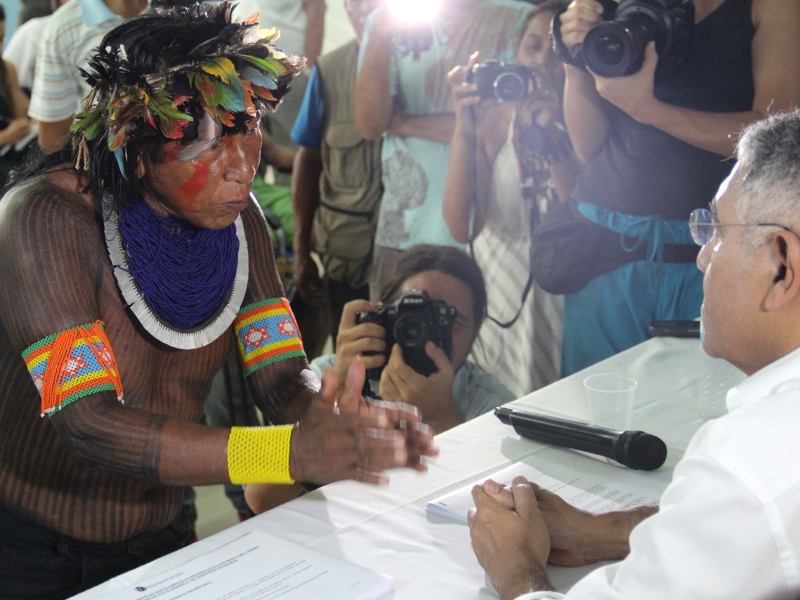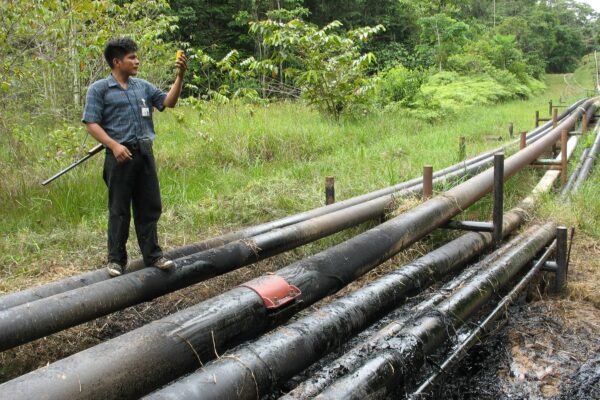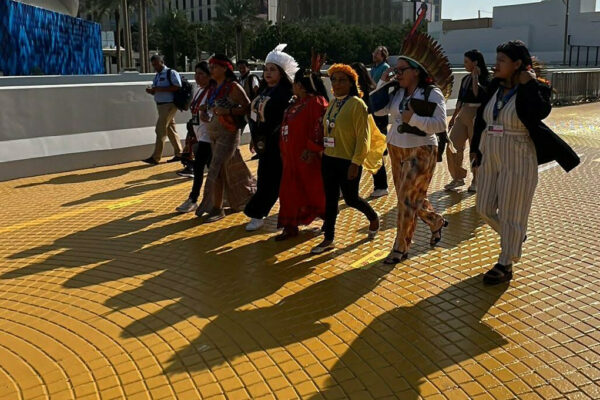
Indigenous communities and the Amazon rain forest have joined the growing list of potential victims of Brazil’s huge corruption scandal, according to a senior construction executive who testified that the Belo Monte dam was used to generate 150m reais ($41.4m) in donations to the ruling coalition.
In a plea bargain that adds to the pressure on Brazil’s president, Dilma Rousseff, Otávio Marques de Azevedo, the former president of the construction company Andrade Gutierrez, also told investigators that dozens of other projects were used to generate funds for political parties.
The greatest attention, however, is on the controversial hydropower plant that was pushed through by President Rousseff despite years of protests by environmentalists and human rights campaigners who say the dam on the Xingu river would destroy indigenous peoples’ livelihoods and harm one of the world’s most biodiverse regions.
It is now claimed that as well as being Brazil’s biggest engineering project, the 26m reais dam has also been one of the main sources of funding for government parties.
The ruling Workers party and its former coalition partner, the Brazilian Democratic Movement Party, were allegedly paid 75m reais each by three construction companies that initially lost the bid to build Belo Monte but were later added to the consortium, the Folha de São Paulo reported on Thursday.
This was 1% of their share of the contract, according to the paper, which said the money was paid by the three firms – Andrade Gutierrez, Odebrecht and Camargo Corrêa – during the 2010, 2012 and 2014 election campaigns.
The details of this scheme were revealed in a plea bargain by Marques de Azevedo.
He is one of dozens of executives and politicians who have been charged in the ongoing Lava Jato (Car Wash) investigation into corruption at state-run oil company Petrobras and major construction companies.
This is not the first claim that the government benefited illicitly from the Belo Monte project. Workers party senator Delcídio do Amaral previously testified that the graft scheme was set up during the government of Rousseff’s predecessor, Luiz Inácio Lula da Silva. He claimed it had channelled 45m reais from overcharged dam contracts to the two parties for the 2010 and 2014 election campaigns.
The government denies wrongdoing. Rousseff’s office says donations were made lawfully.
But for conservationists and human rights activists, the allegations explain why Belo Monte went ahead regardless of concerns about its environmental impact and economic viability.
“It further confirms what we’ve suspected since the project was rammed forward, in violation of Brazil’s legislation and constitution,” said Christian Poirier, program director of Amazon Watch. “Today’s news sheds further light on the rampant corruption that underpins the construction of Belo Monte. Aside from its looming ethical implications this scandal also reignites the debate as to whether the mega-dam should ever have been built, while revealing what forces lie behind Brazil’s dam building boom.”
Peter Bosshard, interim executive director of International Rivers, said corruption was typical on such big hydro projects in other countries, including Yacyretá in Argentina, the Three Gorges in China and the first incarnations of the Bakun and Bujagali dams in Malaysia and Uganda.
“They are built not to address the needs of the poor but to line the pockets of decision-makers and benefit a small clique of politicians, bureaucrats and corporate leaders. All parties in this scheme must be criminally prosecuted, and the companies that paid the bribes should be barred from receiving further government contracts,” he said.
Greenpeace said the report highlighted the need to halt another planned cascade of dams on the Tapajós river.
“Andrade Gutierrez has exposed one of the worst-kept secrets in Brazil, that our infrastructure projects are riddled with corruption, including the major dams in Amazonia,” said Danicley Aguiar, Amazon campaigner for Greenpeace Brazil. “The first question which needs answering is why the Brazilian government insists on building mega-dams instead of investing in more efficient and less destructive options like solar and wind power, which are capable of answering the Brazilian demand for energy.”













